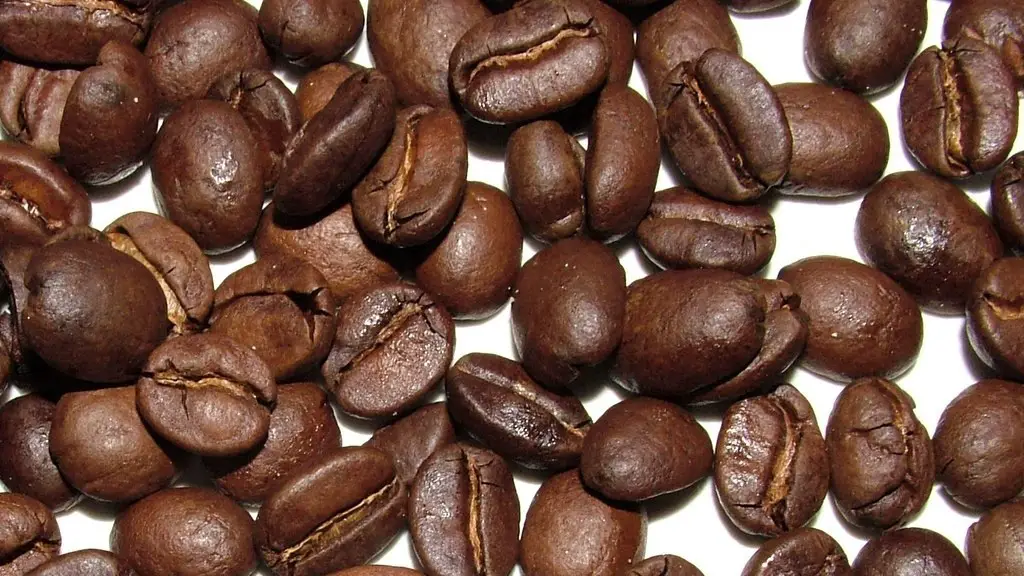Nausea after drinking coffee can be a common experience for some people. It is often caused by consuming too much caffeine, or too quickly. While it is unpleasant, there are some simple steps you can take to reduce and even eliminate the nausea you may be feeling.
The first thing to do is to stop drinking coffee. While this may seem counterintuitive, it will give your body a chance to process the caffeine already in your system and will help reduce any further nausea. Additionally, drinking lots of water can help flush out the caffeine more quickly.
If you are still feeling nauseous, try eating something light that is easy for your stomach to digest such as crackers or toast. This will help reduce any acidity in your stomach and provide some relief from nausea. Additionally, resting for a bit can help your body recover from the effects of the caffeine more quickly.
Finally, if possible avoid drinking coffee on an empty stomach or drink it in moderation if you are particularly sensitive to its effects. This way you can enjoy coffee without having to worry about nausea afterwards.
Moderating Coffee Intake
Coffee is a popular beverage enjoyed by many, but it can cause some unpleasant side effects such as nausea. To reduce the likelihood of experiencing nausea after drinking coffee, it is important to moderate coffee intake. This can be done by limiting how much coffee you drink each day and spread out your consumption throughout the day instead of drinking it all in one sitting. It is also beneficial to have a snack when you drink coffee to help slow down the absorption of caffeine into your bloodstream and help reduce any stomach discomfort. Additionally, adding milk or cream to your coffee may help reduce nausea since these ingredients contain fats which can slow down the process of digestion. Lastly, drinking plenty of water throughout the day can help flush out any excess caffeine in your system, thus reducing the chances of feeling nauseous after consuming coffee.
By moderating coffee intake and knowing how to properly manage its consumption, you can avoid unpleasant symptoms like nausea and continue to enjoy a good cup of joe without any unwanted consequences.
How Caffeine Affects Digestion
Caffeine is a stimulant found in coffee, tea, and many energy drinks that can provide a boost of alertness and energy. However, drinking too much caffeine can lead to an upset stomach, nausea, and other digestive issues. Caffeine increases the amount of acid in your stomach and can cause gastric irritation. If you experience nausea after drinking coffee, there are several things you can do to help get rid of it.
Drink plenty of water throughout the day to help flush out toxins from your body. Avoid acidic or spicy foods as they can make your stomach more sensitive to caffeine. Eating a light snack such as crackers or toast before drinking coffee may also help reduce nausea. Finally, taking an antacid or over-the-counter medication like Pepto Bismol may help reduce stomach discomfort caused by caffeine.
It is important to note that everyone reacts differently to caffeine so it may take some trial and error to find what works best for you. If you find yourself experiencing frequent digestive issues after consuming coffee or other caffeinated drinks, it may be best to reduce your intake or switch over to decaf alternatives.
If you’re looking for ways to reduce caffeine intake, consider switching from regular coffee to decaf or only drinking caffeinated beverages occasionally. Additionally, limiting how much caffeine you drink in one sitting will help keep your body from becoming overwhelmed and experiencing unpleasant symptoms like nausea.
Foods and Drinks That Can Help Reduce Nausea
Nausea can be a difficult symptom to manage, especially after drinking coffee. While it may seem counterintuitive to eat or drink something when feeling nauseous, certain foods and drinks can help reduce the symptoms. Eating bland foods like crackers, toast, rice, and applesauce can help settle an upset stomach. Drinking clear liquids such as water or ginger ale can also help hydrate the body while providing some relief. Additionally, adding ginger to tea or smoothies may help provide relief from nausea due to its anti-inflammatory properties. Lastly, sipping on peppermint tea may help relax the stomach muscles and reduce nausea.
It is important to remember that every person’s body reacts differently when feeling nauseous. If certain foods do not provide relief, then it may be best to rest until the symptoms subside. Eating small meals throughout the day instead of large ones and avoiding overly greasy or spicy foods is also recommended for people seeking relief from nausea.
Natural Remedies for Caffeine-Induced Nausea
Caffeine-induced nausea can be an unpleasant experience and can be difficult to manage. If you find yourself feeling nauseous after drinking coffee, there are a few natural remedies you can try to help alleviate the symptoms. First and foremost, it’s important to drink plenty of fluids such as water or herbal tea. These will help to flush out any excess caffeine in your system and reduce the effects of nausea. Additionally, ginger is a great natural remedy for nausea, so try making some ginger tea or adding freshly grated ginger to your water or herbal tea. Finally, eating small, frequent meals throughout the day instead of large meals can also help reduce feelings of nausea. If these methods do not work to relieve your symptoms, it may be time to consider cutting down on your caffeine intake in order to avoid such uncomfortable side effects.
What Causes Nausea After Drinking Coffee?
Nausea after drinking coffee is a common occurrence. This can be caused by several things, such as drinking too much coffee, caffeine sensitivity, or consuming coffee on an empty stomach. Too much caffeine can cause your blood pressure to rise, which can lead to nausea and other symptoms. Caffeine sensitivity is also a common cause of nausea after drinking coffee; those with this condition tend to experience nausea more often after consuming caffeine. Additionally, consuming coffee on an empty stomach can lead to the feeling of nausea due to the acidic content in the beverage.
Fortunately, there are some steps you can take to reduce the risk of experiencing nausea after drinking coffee. First off, try and limit your daily intake of caffeine and drink it slowly over time instead of all at once. If you’re particularly sensitive to caffeine, try decaffeinated varieties instead. Additionally, it’s best not to drink coffee on an empty stomach; eating something before drinking your morning cup will help reduce feelings of nausea later on. Finally, if you do experience nausea after drinking coffee, try sipping on some cold water or taking a few minutes to lie down and relax until the feeling passes.
Tips for Minimizing Nausea from Caffeine Consumption
If you have experienced nausea after drinking coffee or other caffeine-containing beverages, there are several things you can do to reduce the severity and duration of your symptoms. First, be sure to drink plenty of water throughout the day. This will help keep your body hydrated and flush out any excess caffeine from your system. Second, try to limit your caffeine intake. Too much caffeine in one day can be overwhelming for some people, causing them to feel nauseous and possibly even dizzy. Lastly, if you do experience nausea after drinking coffee or other caffeinated beverages, take some time to rest and relax before trying again. Allow yourself time to settle down before attempting another cup of coffee or energy drink.
Additionally, it’s important to pay attention to how much sugar is in your coffee or energy drink. Too much sugar can cause feelings of nausea and may contribute to stomach upset. If you find that the sugar content in your beverage is too high, look for an alternative with less sugar or try adding a small amount of milk or cream instead.
Finally, if none of these tips work for you and you continue to experience nausea after drinking coffee, it’s important that you speak with a healthcare professional about possible underlying causes and treatments that may be available.
Final Words
To get rid of nausea after drinking coffee, it is important to understand the cause and then address it by taking the proper steps. Drinking plenty of water, eating something small, and taking a break from caffeine can help alleviate nausea. Additionally, taking an over-the-counter medication or seeking medical attention in more serious cases may be necessary. To prevent nausea after drinking coffee in the future, make sure to drink it in moderation and never on an empty stomach.
Nausea is a common side effect of drinking too much coffee and can often be managed with lifestyle adjustments or medications.
By understanding the cause of your nausea after drinking coffee and following the above tips, you can reduce your symptoms and prevent future occurrences.





